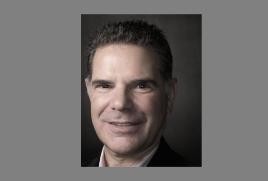President Obama's First 100 Days as Experienced from Norway

On the 100th day anniversary of Barack Obama's presidency last week, I was speaking to 1,000 media, agency and marketing executives at "Gulltaggen," the Nordic Countries Interactive Advertising Bureau annual conference in Oslo, Norway. Unlike here in the U.S., where rabid Republican partisanship borders on anti-Americanism (and often seems to cross that border), among Norwegians the enthusiasm and support for President Obama is unrestricted and seemingly universal. My previous visit to Europe was before the November election and Europeans truly didn't believe Obama could be elected. They logically thought the same America that had foisted George W. Bush, Dick Cheney, Condoleezza Rice and Donald Rumsfeld on the world could not embrace Barack Hussein Obama as its president.
The change in attitude toward Americans among Europeans, at least among Scandinavians, is palpable. Once again, an American accent is met with enthusiasm rather than sullen rejection and even anger. Whatever your politics or your perceptions of President Obama's first hundred days, it is gratifying that we can now travel to many countries without the need to constantly be on the defensive. There are those here who resent the Obama apologies during the G-20 Conference. I, for one, am grateful that I no longer feel the need.
The Gulltaggen (Golden Tag) Conference is among Norway's largest and most important media events. Other speakers included Wired editor Chris Anderson, who previewed his soon-to-be-released book "FREE: The Past and Future of a Radical Price;" author and pundit Seth Godin; Jonathan Kish of McCann Erickson Israel; Mike Walsh, author of "Futuretainment -- The New Media Revolution;" and the engaging Dr. Kjell A. Nordstrom, who spoke on "Funky Business Forever." Norway's media business continues to be dominated by newspapers and leading newspaper companies. They entered the online business early, are capturing the online classified advertising business, and while struggling with a declining ad economy they appear in much better shape than their U.S. counterparts.
While there is extensive competition from satellite television channels that cover Europe, local TV is dominated by three channels, led by government funded NRK and independent TV2. There is no advertising on NRK and the independents are limited by regulations to airing commercials between programs. Ad restrictions in Norway have slowed DVR penetration.
Because so little TV advertising is available, the global advertising recession is having less impact in Norway and other regulated countries than in the U.S. While the U.S. advertising business is expected to lose 25% of its revenues between 2007 and 2011, Norway's ad economy will decline by less than 10%. And advertisers have embraced online advertising with enthusiasm and creativity, albeit with minimal comparative impact from video, social networking or even mobile applications.
The U.S. interactive business community is influenced heavily by executives from the traditional media players, but is dominated by companies that have emerged since the mid and late 1990s. VC funded companies proliferate. Vertical ad sales networks are ubiquitous. In the Scandinavian companies, traditional media companies have either not yet felt the impact of the new media or they have been more aggressive participants in the emergence of online business opportunities.
In my conversations with leaders of the interactive business community in Norway, I searched for parallels and comparisons to the challenges and difficulties, as well as the opportunities, here in the U.S. Overall, I experienced far less distress, more sense of opportunity, and less economic fear. There is less dependence on VC funded business models and more creativity. There is not a great deal to be learned from the Scandinavian experiences, as best I can tell, and even less those in Scandinavia can learn from their U.S. counterparts.
Jack Myers advises global and domestic U.S. companies on business growth opportunities. He can be contacted at jm@jackmyers.com


